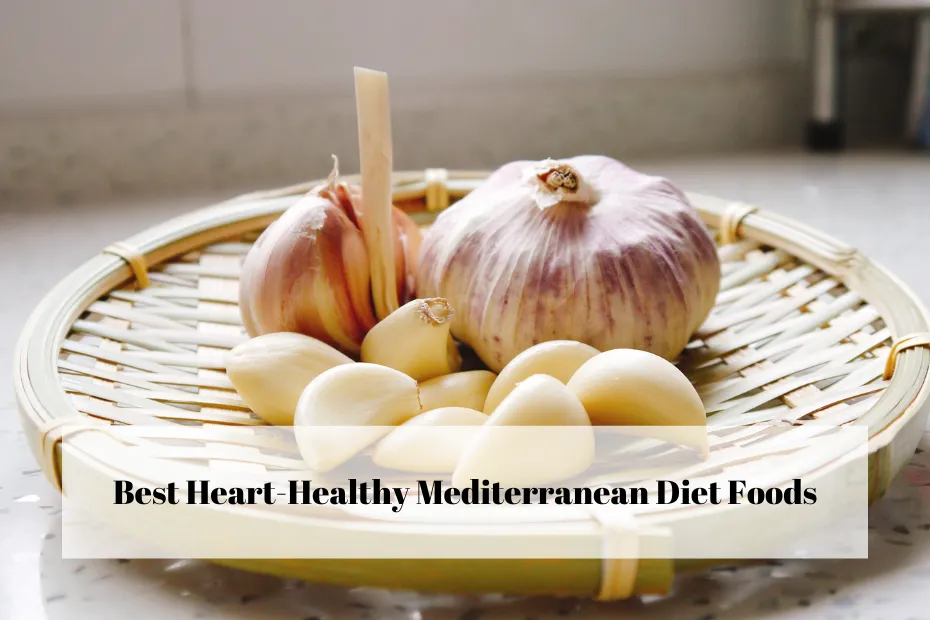The Mediterranean diet is consistently ranked as one of the healthiest dietary patterns. It emphasizes whole, minimally processed foods like fruits, vegetables, whole grains, beans, nuts, seeds, and olive oil.
The diet also contains plenty of fish and seafood, moderate amounts of eggs, dairy, and poultry, and limited red meat. Multiple studies link following a Mediterranean diet pattern to better heart health and a lower risk of heart disease.
These eight foods are particularly beneficial for heart health and are commonly enjoyed in the Mediterranean region.
Extra Virgin Olive Oil
Olive oil is the primary source of added fat in the Mediterranean diet. Extra virgin olive oil contains powerful antioxidants called polyphenols that protect “bad” LDL cholesterol from oxidation.
Oxidized LDL is linked to inflammation, atherosclerosis, and an increased risk of heart attack and stroke. The oleocanthal in olive oil also has anti-inflammatory effects similar to ibuprofen.
Nuts and Seeds
Tree nuts and seeds are nutritious additions to the Mediterranean diet. They provide fiber, vitamin E, and plant sterols that help lower LDL cholesterol.
Walnuts are an excellent choice as they contain omega-3 fatty acids that support heart health. Almonds, hazelnuts, pistachios, and pumpkin seeds are other great options.
Fatty Fish
The Mediterranean diet includes plenty of oily fish like salmon, mackerel, sardines, and herring. These types of fish are rich in omega-3 fatty acids that have cardioprotective effects.
Omega-3s reduce inflammation, decrease triglycerides, lower blood pressure, and may lower the risk of heart disease, arrhythmias, and stroke.
Whole Grains
Whole grains like oats, brown rice, farro, buckwheat, barley, and bulgur are better choices than refined grains.
They provide antioxidants, fiber, and nutrients like magnesium, potassium, and B vitamins that support heart health. The fiber in whole grains may additionally lower cholesterol and blood pressure.
Tomatoes
Tomatoes are a wonderful source of lycopene, a potent antioxidant that gives tomatoes their bright red color.
Research suggests that lycopene protects against LDL oxidation and may lower the risk of cardiovascular disease. Cooking tomatoes boosts the concentration and absorption of lycopene.
Garlic
Garlic has antiviral, antibacterial, and anti-inflammatory effects. It also may help lower blood pressure, slow the development of atherosclerosis, and reduce arterial plaque formation. Adding garlic to recipes is an easy way to boost the health benefits of the Mediterranean diet.
Legumes
Beans, lentils, peas, and chickpeas are dietary staples in the Mediterranean region. They are loaded with soluble fiber and nutrients like folate, magnesium, and potassium that support heart health.
Eating legumes may help lower LDL cholesterol, blood pressure, and heart disease risk as part of the Mediterranean diet pattern.
Red Wine
Moderate red wine intake with meals is characteristic of the Mediterranean diet. Red wine contains resveratrol and other polyphenols that may protect the heart.
Researchers think that one glass of red wine per day for women and one to two glasses per day for men is the ideal amount for heart health benefits. More than this may increase health risks.
Incorporating more of these eight foods and beverages into your routine is a tasty way to maximize the heart-healthy benefits of the Mediterranean diet. This well-studied dietary approach combines delicious food, lifestyle changes, and disease prevention for overall wellness.




